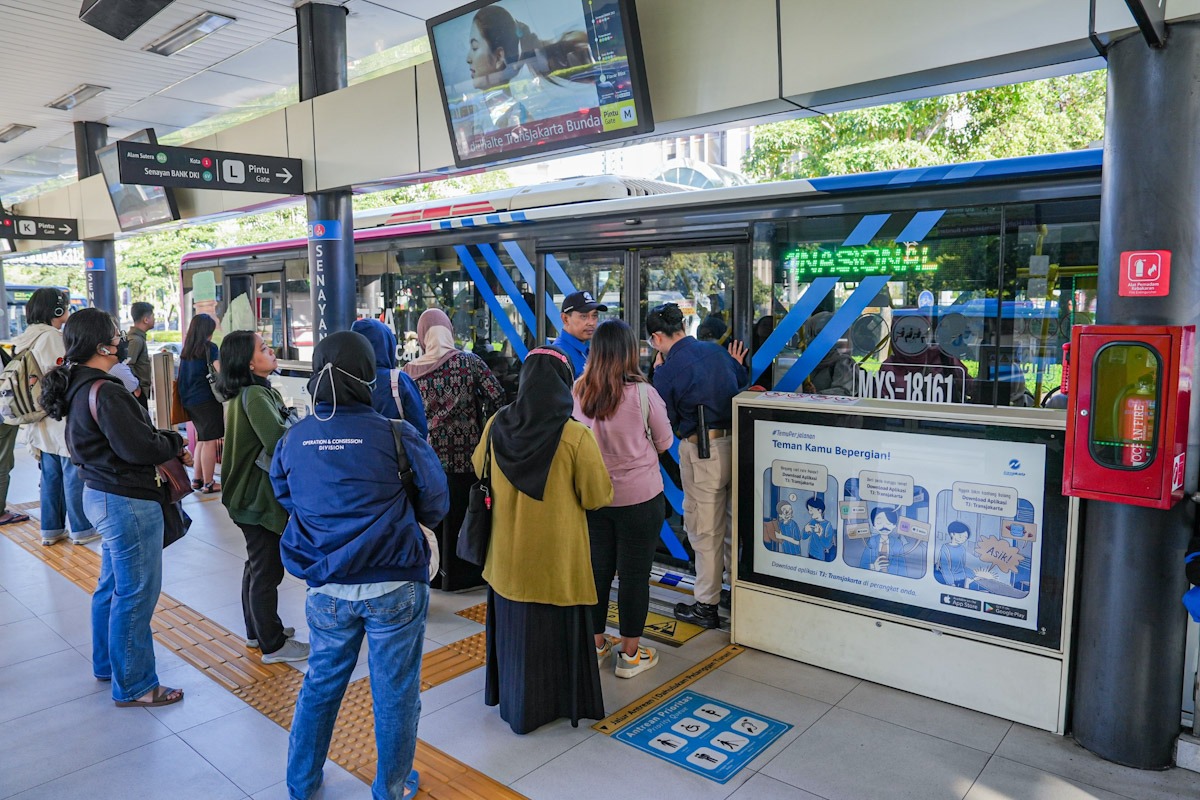The resumption of all Transjakarta bus corridors has been met with relief and appreciation from Jakarta residents, as the city gradually returns to a more stable condition. Known as an affordable, safe, and convenient mode of public transportation, Transjakarta remains the backbone of urban mobility for thousands of commuters. Many passengers expressed their gratitude for the service’s quick recovery after disruptions caused by acts of vandalism during demonstrations. For them, the buses are not only a means of travel but also a crucial lifeline for daily routines.
One passenger, Imran (28), described how the shutdown of Transjakarta services due to unrest had caused serious difficulties. He welcomed the reinstatement of operations and highlighted the affordability of the service as essential for workers. Imran also praised the decision of Jakarta Governor Pramono Anung to set bus fares at only one rupiah from September 1 to 7, a policy that significantly eases the burden of transportation costs. He expressed hope that no further anarchic actions would damage public facilities in the future.
Similarly, Farah, a 32-year-old commuter who relies on Transjakarta’s Corridor 11 from Kampung Melayu to Terminal Pulo Gebang, voiced her satisfaction. She explained that Transjakarta’s efficiency, comfort, and low cost make it indispensable for her daily activities. According to Farah, the resumption of services is not only a matter of convenience but also a reassurance that Jakarta’s public infrastructure can withstand challenges. She urged all sides to safeguard public facilities as they are vital for the city’s residents.
Based on data from PT Transjakarta, between August 30 and September 2, a total of 4,907 buses were deployed across 240 routes, including Bus Rapid Transit (BRT), Mikrotrans, Rusun services, and Transjabodetabek connections. The rapid restoration of services was made possible through coordination between the Jakarta Provincial Government, PT Transjakarta, and security forces. This swift recovery reassured the public that the city’s primary transportation system remains resilient in the face of disruption. For many residents, the buses symbolize not just a means of mobility, but also the resilience of Jakarta itself.
Alexander Jason – Redaksi



